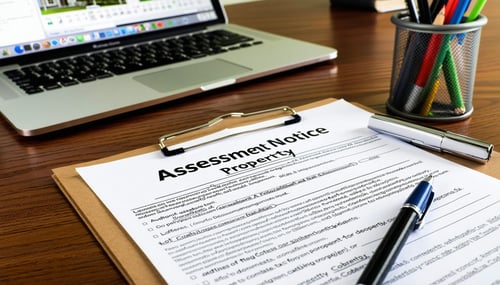If you're a homeowner in Cobb County, Georgia, it's perfectly reasonable to wonder whether your property tax assessment accurately reflects your property's fair market value. An over-assessment can mean you're paying more property taxes than necessary. Here's how to identify potential errors and what to do next.

🔍 1. Review Your Property Tax Assessment Notice Carefully
-
Check Property Details: Ensure all listed information is correct—address, legal description, lot size, square footage, number of bedrooms/bathrooms, garage, pool, etc. Mistakes here can skew your valuation.
-
Understand Fair Market Value (FMV): This is what the county estimates your home could sell for as of January 1st of the tax year.
-
Note the Appeal Deadline: You have 45 days from the date on your Annual Notice of Assessment to file an appeal.
🏘️ 2. Compare Your Assessment to Recent Sales (Comps)
-
Find Similar Homes in Your Area: Look for sales within the last 6–12 months of homes in your Cobb County neighborhood that are similar in size, age, style, and condition.
-
Use Trusted Sources:
-
Cobb County Assessor's Website: cobbassessor.org
-
MLS data (via a Realtor)
-
Real estate sites like Zillow or Realtor.com (be cautious—always verify)
-
-
Analyze the Gap: If similar homes sold for significantly less than your assessed value, you may be over-assessed. Make necessary adjustments for differences (lot size, additions, etc.).
🛠️ 3. Evaluate the Physical Condition of Your Property
-
Objective Assessment: Consider outdated features, deferred maintenance, or damage that may not be reflected in the county's valuation.
-
Gather Evidence:
-
Take photos/videos of defects.
-
Obtain repair estimates from Cobb-based contractors.
-
Note the property’s condition as of January 1st.
-
⚖️ 4. Watch for Mass Appraisal Limitations
-
How Cobb Assesses: Cobb County uses mass appraisal models, which evaluate many properties at once. These models can miss individual property details.
-
Unexplained Increases: If your value jumped without renovations or market justification, contact the Tax Assessor’s office for clarification.
🌐 5. Consider External (Economic) Factors
-
Environmental & Economic Issues: Nearby nuisances (traffic noise, commercial decline, industrial proximity) may lower your property’s market value.
-
Has the neighborhood changed in a way that impacts value? The county’s models may not fully reflect these shifts.
🚩 Common Signs of Over-Assessment
-
Your FMV is substantially higher than similar home sales.
-
The county records list incorrect property features.
-
The condition of your home has declined or is outdated, but this is not reflected.
-
Your assessment rose sharply without improvements or market evidence.
-
External factors negatively affect your home’s value.
📝 What to Do Next
If you suspect over-assessment:
-
Gather your evidence: comps, photos, appraisals, repair estimates.
-
File your appeal on time: You have 45 days from your notice date.
-
Focus on facts: Georgia law (O.C.G.A. § 48-5-311) allows appeals based on:
-
Fair Market Value
-
Uniformity (compared to similar homes)
-
Taxability (if applicable)
-
By understanding how your property was assessed and comparing it with current market data, you can determine if an appeal is justified. Act quickly, stay organized, and be thorough—doing so can potentially save you hundreds or even thousands on your property tax bill in Cobb County.
📚 Cobb County Property Tax Resources
🔗 Official Cobb County Resources
-
Cobb County Board of Tax Assessors:
https://www.cobbassessor.org
Phone: (770) 528-3100
Address: 736 Whitlock Ave NW, Marietta, GA 30064 -
Cobb County Tax Commissioner (for payments/exemptions):
https://www.cobbtax.org
Phone: (770) 528-8600 -
Homestead Exemption Information:
https://www.cobbtax.org/property/exemptions
Deadline to apply: April 1st -
Property Tax Appeal Form (PT-311A):
https://dor.georgia.gov/documents/property-tax-appeal-assessment-form-pt311a -
Georgia Department of Revenue - Property Tax Info:
https://dor.georgia.gov/property-tax



